Announcing Rothko Chapel’s New Spirituality & Social Justice Cohort
August 11, 2020

This special project will provide a platform for discourse on, and exploration of, the relationship between spirituality and social justice advocacy .
The Rothko Chapel has announced a new Spirituality and Social Justice Cohort, a strategic planning project funded by the Henry Luce Foundation. The cohort, a group of eight change leaders, will begin convening virtually this summer and in person in 2021, to help further contemporary understandings about the spirituality-social justice relationship and how these can inform future directional aspects of the Chapel's programming and community engagement efforts.
The Henry Luce Foundation, established in 1936 by Henry R. Luce, the co-founder and editor-in-chief of Time, Inc., seeks to enrich public discourse by promoting innovative scholarship, cultivating new leaders, and fostering international understanding. The Foundation advances its mission through grant making and leadership programs in the fields of Asian studies, higher education, religion, theology, American art, and public policy.
Since its founding in 1971, the Rothko Chapel has operated at the vanguard of social justice, hosting symposia for scholars, activists and religious leaders from around the globe to engage in discussions on issues affecting human rights, and to work towards a culture of mutual understanding. Central to the Chapel’s mission is a deep commitment to support those who are marginalized and to strengthen collective efforts to address the world’s most divisive and difficult problems while also affirming the importance of spirituality as the bedrock for social transformation. The Rothko Chapel ensures that a diversity of religious and spiritual representatives, artists, and social change leaders representing distinct issues and community sectors are engaged in the design and presentation of its programming and community engagement initiatives.
Today, the Chapel is acutely aware that spirituality has diverse meanings and takes on many forms especially within the context of religious pluralism and the growing sector of ethically committed and socially engaged people who identify as "spiritual but not religious," as well as those who have no religious or spiritual belief. The Chapel’s commitment to supporting social change involves facilitating strategic dialogue on the connections between spirituality and social justice, including fostering discussions among different groups and community sectors. The Spirituality and Social Justice Cohort will allow the Chapel to continue to develop its role as a cultivator of the exchange of ideas, aimed at contributing to the growth of social justice efforts in Houston and beyond. The timing for the query is important as the Chapel celebrates its 50th Anniversary and prepares for an expanded campus as part of the Opening Spaces site development plan that includes the addition of a new program center.
The eight members of the cohort are recognized leaders in the arts, academic, religious and social justice sectors who will bring insight and experience to the interplay between spirituality and social justice movements. The project is being organized by Rothko Chapel’s Executive Director, David Leslie, MDiv, and Director of Programs and Community Engagement, Ashley Clemmer, MA, in collaboration with Rothko Chapel Advisor, Anthony B. Pinn, MDiv, PhD, the Agnes Cullen Arnold Professor of Humanities and Professor of Religious Studies at Rice University. The Chapel will share the results from the cohort efforts at the Chapel’s 2021 Spring Symposium, focused on the state of human rights in the US, and engage symposium participants in the ongoing framing of spirituality-social justice connections.
The Chapel has named the following individuals to the new cohort:
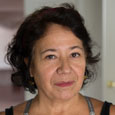
Elia Arce is a conceptual artist working in a wide variety of media. A winner of many international awards, Arce is the Founder and Artistic Director of USEKRA: Center for Creative Investigation, where international thinkers will meet to challenge each other and create art and thought from an Indigenous, Afro-descendant and/or Asian perspective – cultures that are the pillars of the Talamanca region. A book about Arce´s work was just published by the Hemispheric Institute of Performance and Politics from New York University. She is based in Costa Rica and the US.
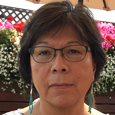
Suzanne Benally is Navajo and Santa Clara Tewa. She grew up in the community of Shiprock, New Mexico on the Navajo Nation. Suzanne has worked in higher education and the non-profit sector for 35 years. Suzanne served as the Executive Director of Cultural Survival, an international Indigenous rights advocacy organization that advocates for Indigenous Peoples' rights, self-determination, land, language, culture, and political resilience. Formerly, she served as the Associate Vice President for Academic Affairs at Naropa University, and was a core faculty member and previous chair of the environmental studies department. Suzanne is currently board chair of the International Funders for Indigenous Peoples and a Trustee of the Naropa University Board of Trustees. Deeply committed to social, environmental and climate justice, her work, passion, and interests center on relationships and interconnectedness between land, spirituality, culture, and people as reflected in narratives and stories past and present. Suzanne lives in Santa Fe, New Mexico.
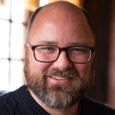
Sean Fitzpatrick, PhD, LPC, is the Executive Director of The Jung Center and a psychotherapist in private practice. He is the author of The Ethical Imagination: Exploring Fantasy and Desire in Analytical Psychology (Routledge) and a contributor to Being Spiritual but not Religious: Past, Present, Future(s), edited by William Parsons. He is a Senior Fellow of the American Leadership Forum and serves on the board of the Network of Behavioral Health Providers. He presents internationally on ethics, secondary trauma and self-care, and the intersections of psychology and spirituality.
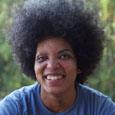
Ash-Lee Woodard-Henderson is the Executive Director of the Highlander Research & Education Center, a social justice leadership training school and cultural center founded in 1932. Through popular education, language justice, participatory research, cultural work, and intergenerational organizing, they help create spaces—at Highlander and in communities—where people gain knowledge, hope and courage, expanding their ideas of what is possible. Ash-Lee is a long-time activist working against environmental racism in central and southern Appalachia, and has fought for workers’ rights, racial justice, women and LGBTQUIA+ rights, reproductive justice, international human rights, and led-intergenerational social movements across the South. She serves on the governance council of the Southern Movement Assembly and is a nationally recognized leader in the Movement for Black Lives.
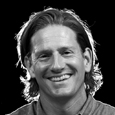
Matthew Russell, MDiv, PhD, is currently the Co-Managing Director of projectCurate, one of the Executive Pastors at Chapelwood United Methodist Church, the Co-Founder and Executive Director of Iconoclast Artists and an Assistant Professor of Recovery Ministry at Fuller Theological Seminary. Prior to this he was on faculty at Duke Divinity School as Professor of Theology and Community Development. In 2013 he completed a two-year postdoctoral fellowship at the University of Cambridge’s Psychology and Religion Research Group (PRRG). While at Cambridge he was a tutor at Cambridge Theological Federation and on staff at St. Edwards King and Martyr congregation. He received his Master of Divinity from Fuller Theological Seminary and completed his PhD at Texas Tech University in 2010.
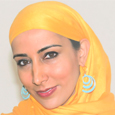
Najeeba Syeed, J.D., is Associate Professor of Muslim and Interreligious Studies at Chicago Theological Seminary and Director of the Center for Global Peacebuilding. She is recognized as a leader in peacebuilding and social justice based research and twice received the Jon Anson Ford Award for reducing violence in schools and in the area of interracial gang conflicts and was named Southern California Mediation Association’s “Peacemaker of the Year” in 2007. Professor Syeed received the 2017 Scholar-Activist Award from Auburn Seminary. Her peace and justice work has been the subject of news reports and documentaries as well such as this film which aired on NBC “Waging Peace: Muslim and Christian Alternatives.” Currently she is co-editing a book with Heidi Hadsell on “Critical Approaches to Interreligious Education,” a project supported by the Henry Luce Foundation. The title of her own forthcoming book is “Sacred Resistance: Interfaith Rituals of Faith Based Migration Activists.”
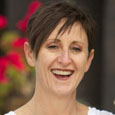
Caron Tabb is a visual artist whose practice is driven by a deep sense of, and continuous quest for social justice. Through her art, she asks questions and inspires conversations about issues she cares deeply about: gender and racial equality, immigration, human rights, and mental health. Caron was born in South Africa, raised in Israel from a young age, and has lived in the USA for the last twenty years. She draws from and finds inspiration in her Jewish heritage and its ancient texts, infusing them with new meaning.
She is an avid collector of found objects which she transforms into one-of-a-kind mixed media or art installation pieces. Since moving to Boston in 2011 and after a robust career in nonprofit work, Caron has become a full-time artist exhibiting in galleries and museums around the country including Boston, New York, Montana, and Vermont. Her work is held in numerous private collections in the US and around the world.
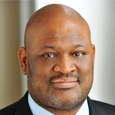
John H. Vaughn, MDiv, is the Executive Pastor of the historic Ebenezer Baptist Church in Atlanta. Before that Rev. Vaughn served for almost ten years as the Executive Vice President at Auburn Seminary. He worked closely with Auburn’s president to transform the organization into a national leadership development and research institute that equips leaders of faith and moral courage for multifaith movements for justice. Before joining the staff of Auburn, Rev. Vaughn served as the Program Director for the Twenty-First Century Foundation, Executive Director of the Peace Development Fund and the Minister for Education and Social Justice at the Riverside Church. An ordained minister in the American Baptist Churches, Rev. Vaughn received his undergraduate degree from Holy Cross College in Worcester, Mass., his Master of Divinity from the Pacific School of Religion in Berkeley, California and is in his third and final year of the Doctor of Ministry program at Drew Theological School.
“Sustaining long-haul social justice activism takes a lot of patience, grit and determination,” explained David Leslie, Executive Director of the Rothko Chapel. “Central to this project are questions such as how do activists from diverse disciplines sustain their activism and social engagement? What spiritual, psychological, creative and existential resources are needed and drawn upon to be effectively engaged in the struggle for social justice? How can the Rothko Chapel further cross-sector understanding and collaboration that support both current and future generations of activists and social change leaders?”
“The Luce Foundation’s Theology Program is pleased to support this initiative of the Rothko Chapel,” said Program Director Jonathan VanAntwerpen, “which extends the Foundation’s longstanding support for work at the intersections of religion and the arts. With David Leslie’s leadership, Rothko Chapel will draw together a diverse and impressive cohort of leaders to explore some of the profuse meanings and varying effects of ‘spirituality’ across a range of communities, movements, and contexts of engagement.”
“Thanks to the support of the Henry Luce Foundation, the Chapel has a unique and very timely opportunity to delve into these critical questions as we further our mission well beyond our first fifty years of service,” Leslie continued.
